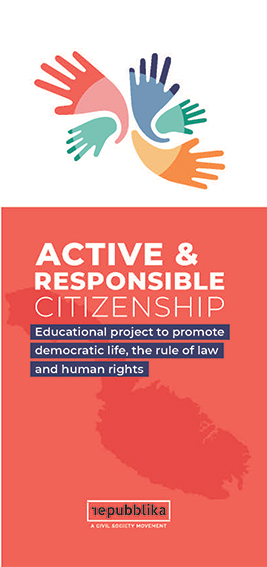This declaration is intended for a society which aspires to be democratic in accordance with the standards enjoyed in mature and advanced democracies, which include:
Political Freedoms and Beliefs
- the basic political freedoms of belief, expression, and conscience, including the freedom to protest and to express dissent;
- the basic political freedom of association to create and actively belong to political parties, trade unions, pressure groups, NGOs, and social movements set up for the promotion and protection of rights;
- the basic political freedom of lifestyle; the right to enjoy the lifestyle of one’s choosing according to one’s cultural and sexual orientation, guaranteed by its recognition as a civil right;
- the belief in social justice and its political expression as a welfare state based on the principle of fair distribution of social benefits and burdens to be enjoyed or borne equally by all citizens;
- the belief in the principle of equal opportunity and consideration for all according to merit, and the rejection of institutional corruption and patronage, and similar abuse of power;
Rights of Citizens
- the right of all citizens to receive an education for active and responsible citizenship at school, and as a lifelong process in adulthood, and the obligation of the state to ensure it;
- the right of every citizen to the information and media resources that are both politically empowering and fundamental to informed active and responsible citizenship;
- the right of every citizen to a government and political administration which is open to scrutiny and holds itself accountable to the public, and to the high ethical standards demanded by a mature democracy;
- the right of every citizen to be protected from the impunity of the powerful by an efficient and impartial police force which is independent and above abusive influence from any political or other quarter, and by an equally free and independent judiciary;
- the right of every citizen to a public broadcasting system which is fair to all sides of the pluralist social and political spectrum of Maltese society, and independent from political control and/or patronage;
- the right of every citizen to enjoy the common heritage of the country, including its history, environment, and its reputation, a right extended to future generations whose interests the present generation is morally obliged to protect;
- the right of every citizen to have their well-being considered above any economic or other utilitarian consideration; which well-being includes the right to the enjoyment of optimal environmental conditions;
- the right of every citizen to receive the assistance required to ensure that their basic welfare rights and needs are protected in a manner that ideally permits their human flourishing and minimally avoids their decline into destitution, helplessness, and poverty;
- the right of every person who has lived in the country for a substantial amount of time to be recognised as a citizen;
Duties of Citizens and Institutions
- the supremacy of the common good where the common interest is at stake, over considerations of economic or partisan political utility;
- the supremacy of the rule of law everywhere and always, which requires all to be regarded as equal before the law without privilege or other consideration, and extends to all the institutions of the state;
- the separation and balance of powers in the governance of the state, between the legislative, the executive and the judiciary, based on the rejection of the centralisation of power found in a dominant state;
- the public accountability of the state, its institutions and functionaries, the obligation of government to engage in public consultation with interested citizens, deference to the principle of subsidiarity and due recognition of the political role of local councils in the democratic state.
Click on the image below to download a copy of the Brochure.


